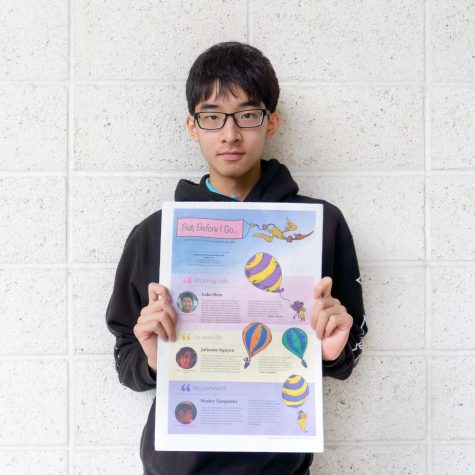Allowing Underclassmen More AP Choices Poses Too Great a Risk
November 23, 2020
Focusing on subjects ranging from literature to chemistry, Advanced Placement (AP) courses undoubtedly have the potential to enrich the academic experiences of Portola High’s student body. With this in mind, it may at first appear odd that out of 22 AP courses offered, only two are freely accessible to freshmen and sophomores. However, extending the availability of AP courses for freshmen and sophomores poses substantial risks.
For one, offering sophomores more diverse AP options may lead to students without extensive experience in high school classes struggling with courses already above the high school level. By definition, AP courses parallel the depth that one would see in a college-level course, posing demanding course expectations for those who elect to take them.
Even if measures, such as a weighted course limit, are maintained to prevent students juggling multiple difficult courses, underclassmen in pursuit of such AP courses as U.S. History would still find themselves at a disheartening disadvantage. Far from an accommodating step towards other AP courses in 11th and 12th grade, the analysis-driven curriculum of the social science course leads only a third of students to earn ‘well-qualified’ scores of 4 or 5, from data provided by the College Board. Skills that would otherwise have been developed through the course of freshman and sophomore year would be put to the test, potentially leaving some students fighting for air, according to AP U.S. History teacher Wind Ralston.
“My course is rigorous, and students struggle with not only the content, but the … analytical component that is key to doing well in AP courses,” Ralston said. “We want kids to be able to explore their passions and explore APs. We don’t want to saddle [them] with too much too early, and then have [them] walk away from [a course] feeling unsuccessful.”
Other schools in the Irvine Unified School District indeed offer AP U.S. History or AP European History to their own sophomores, in contrast to Portola High’s AP Human Geography and AP Art History. However, adding this set of options to Portola High would provide few benefits. Ryan Men, a sophomore at University High, notes that he, along with a majority of 10th-grade students taking AP U.S. History, face a persistent uphill battle.
“I think, personally, my courses [in freshman year] prepared me a little bit. They didn’t prepare me very well, but they prepared me well enough so I could survive,” Men said. “The thing is, the AP teachers still demand a lot more, and they complain a lot about how the ninth-grade teachers have not prepared the students enough.”
Stories of survival like Men’s reaffirm the need for students to evaluate the ways in which their learning experiences are guiding them beyond an AP course, says literary and language arts teacher Desmond Hamilton.
“One of the things that we, as language arts teachers, often think about, and often talk about, is making sure that students that are taking AP courses recognize the significance and importance of taking these courses,” Hamilton said.
The significance of these AP courses in students’ own lives can be realized through the specialization that honors and even college prep courses provide. According to College Board’s BigFuture program, the demonstration of interests and qualities is an important part of the college application process. A deliberate progression through non-AP courses to the AP level can help towards that end.
“I’ve had students take American History with me, and then they wanted to take AP U.S. History with me because they enjoyed the way I taught. [Likewise], Mrs. Schottland gets people in Contemporary Issues because she had them in World and they enjoyed her class,” Ralston said. “Our social studies department [has] worked really hard to give opportunity and options.”




